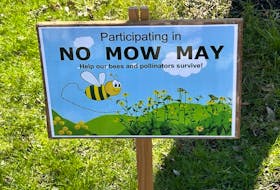‘It was never my intention to bring harm to any reader of this valued community, particularly those for whom I seek to write and empower.’ This came in a tweet, from January 2019, by Amélie Wen Zhao, a Chinese-American author of young adult (YA) fiction. It was prelude to her announcement that she and the publishers had decided to delay the publication of her debut novel ‘Blood Heir’.
The reason? Zhao’s book, described as a dark fantasy-based retelling of the story of Russia’s Grand Duchess Anastasia, had been criticized online for its depictions of race and slavery. Zhao explained that the book drew upon her own upbringing and history. It was written from her ‘immediate cultural perspective’, and thus the depictions of slavery and human trafficking were what she understood them to be.
Unfortunately, as she realized, the book was being read in a different cultural context than her own.
It was the advance copies of Zhao’s book which drew an intense reaction. She was mobbed though social media, often by people who had not yet read her book for themselves but were responding to online commentary and reviews. Trolling and bullying behaviour was scathing.
LL McKinney, a YA author and influencer (that is an author with a twitter handle and a legion of followers) wrote that the book was insulting to the oppression and slavery faced by the African American community. Ellen Oh, another YA influencer, tweeted: ‘You are not immune to charges of racism just because you are a POC [person of colour]. Racism is systemic, especially anti-blackness.’
however was not without her defenders. Some commentators argued that she was a victim of misguided censorship, others said the twitter tirades were a witch hunt. Many people championed her as the epitome of the diversity they wanted to see within YA fiction.
In April, following a period of reflection, Amélie announced the book was to be published in November 2019. In her tweet she wrote, ‘I am excited for readers to meet my new heroine… and for them to have a chance to engage in further dialogue about these important social issues.’
What happened to Amélie Wen Zhao exposed the issues swirling within YA fiction, but it may also be a window on the issues which are of concern to so many of today’s young people.
is a demand for greater diversity – in books, stories, authors and their literacy characters. There is a genuine regard for marginalized communities. It is not only that young people are concerned about marginalized people, but they want them to be accurately represented. The stories of marginalized communities need to be heard and, far more importantly, those stories must be told and written by those from the communities. There must be authentic, first-person voice. There is also a keen awareness of the harm that can be done when those things are missing. Moreover, there is an eagerness to tackle challenging social issues, to defy established norms, a confidence in calling people out for their actions, and reliance on social media as the preferred forum. And all of this depends on a greater sense of scrutiny.
Of course, many of these ideas have already found their way into classrooms and schools. What happens though when the same tenacity as we saw in Zhao’s situation is brought to bear by students on things such as history, literature, science and other parts of the curriculum? Will people retreat to safety or find a way to have further dialog about the important social issues?
Adam Davies lives in Amherst and works for the Cumberland Public Libraries in Amherst. He is a former member of the Chignecto-Central Regional School Board.

![['At the School Board with Adam Davies']](https://saltwire.imgix.net/at-the-school-board-with-adam-davies-3158870.jpg?cs=srgb&fit=crop&h=568&w=847&dpr=1&auto=enhance%2Cformat%2Ccompress)







